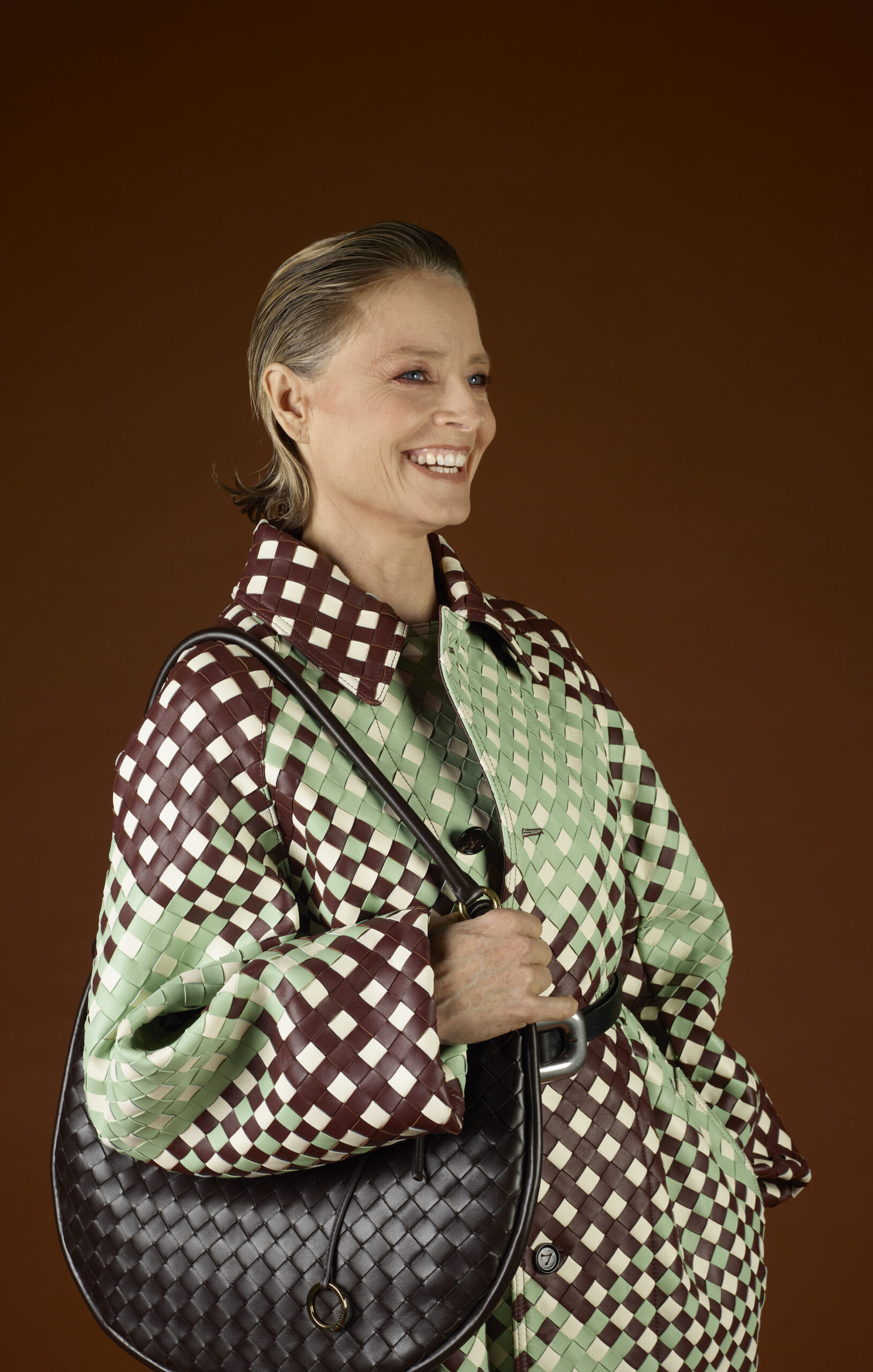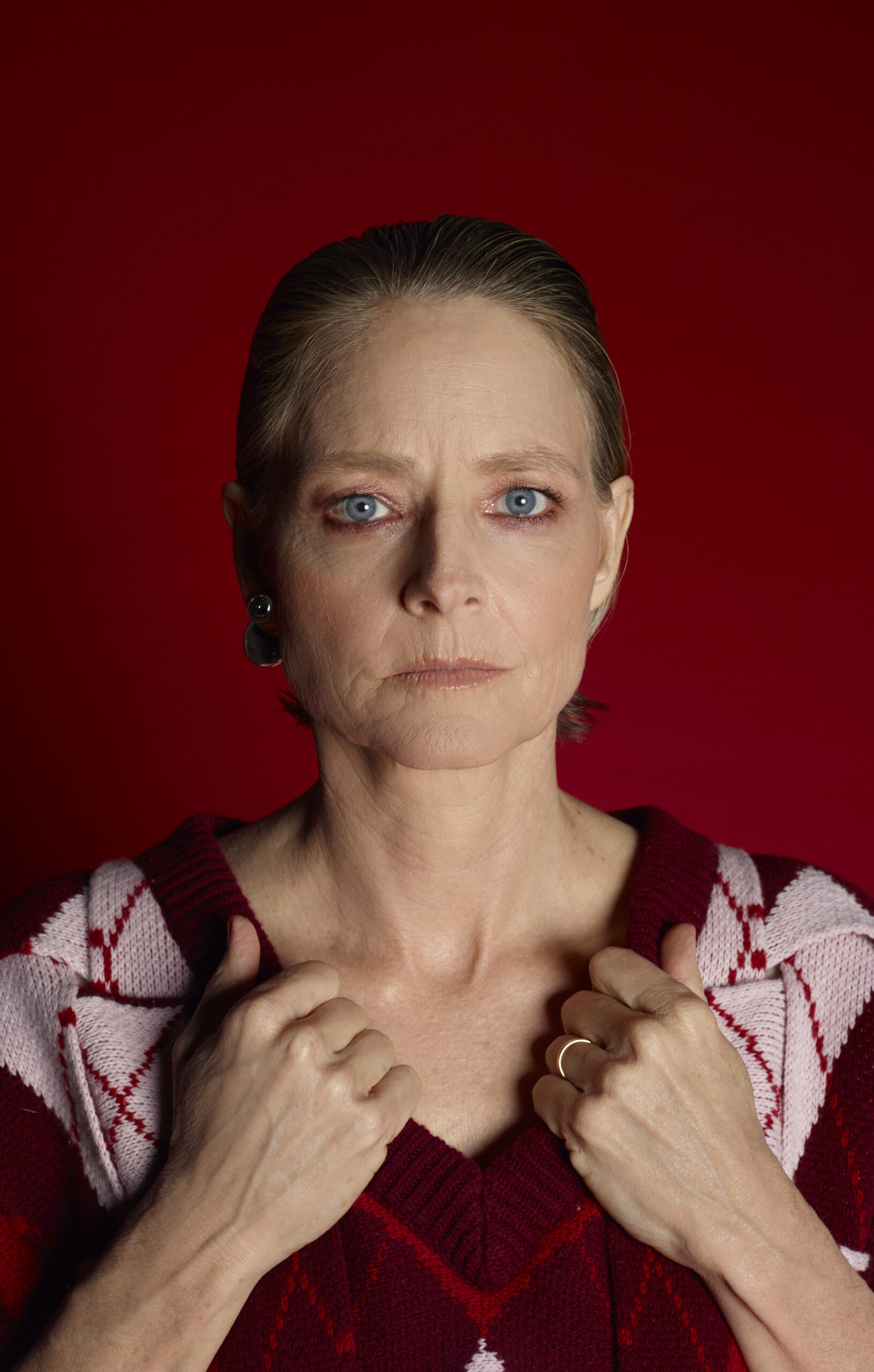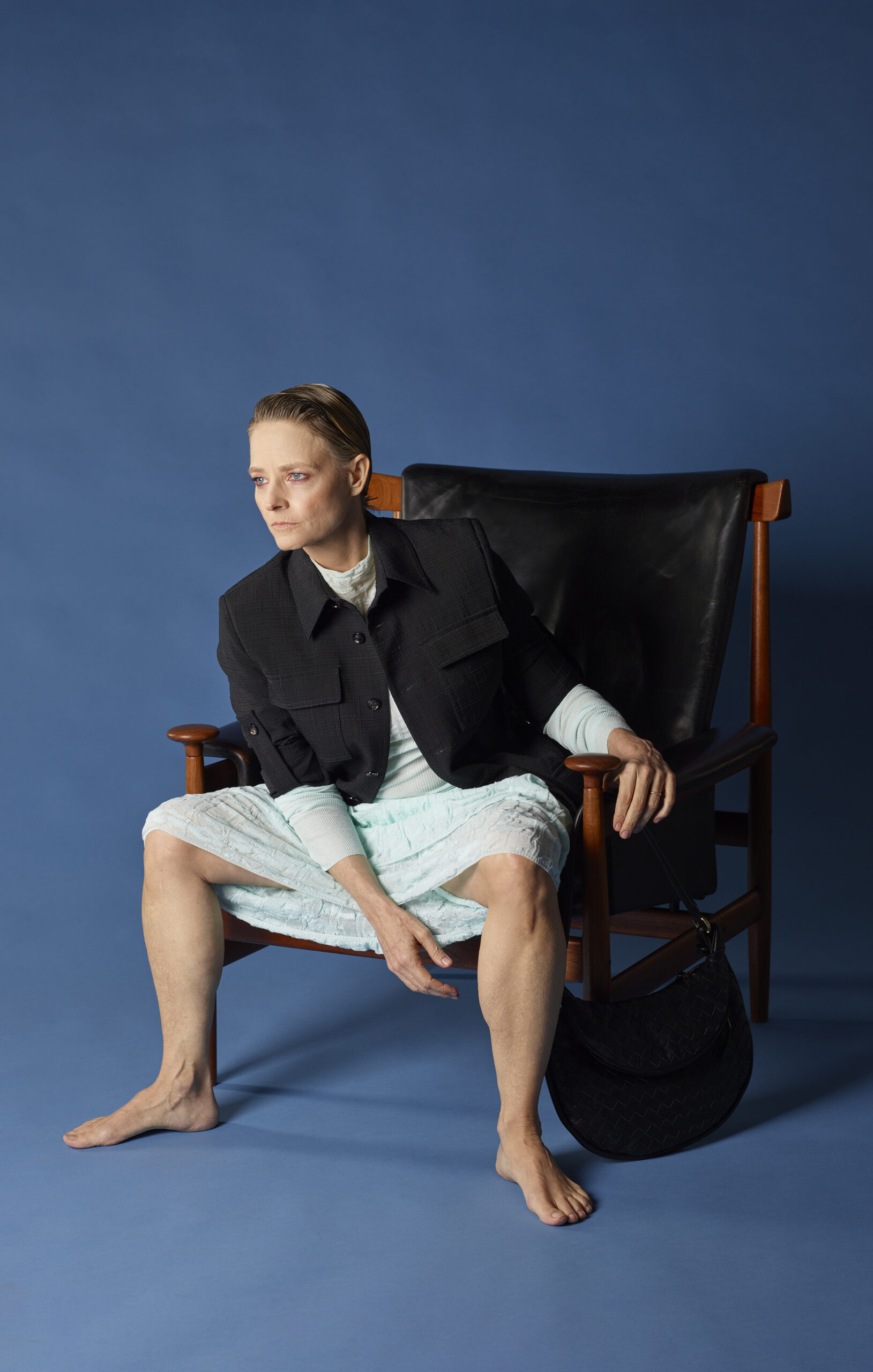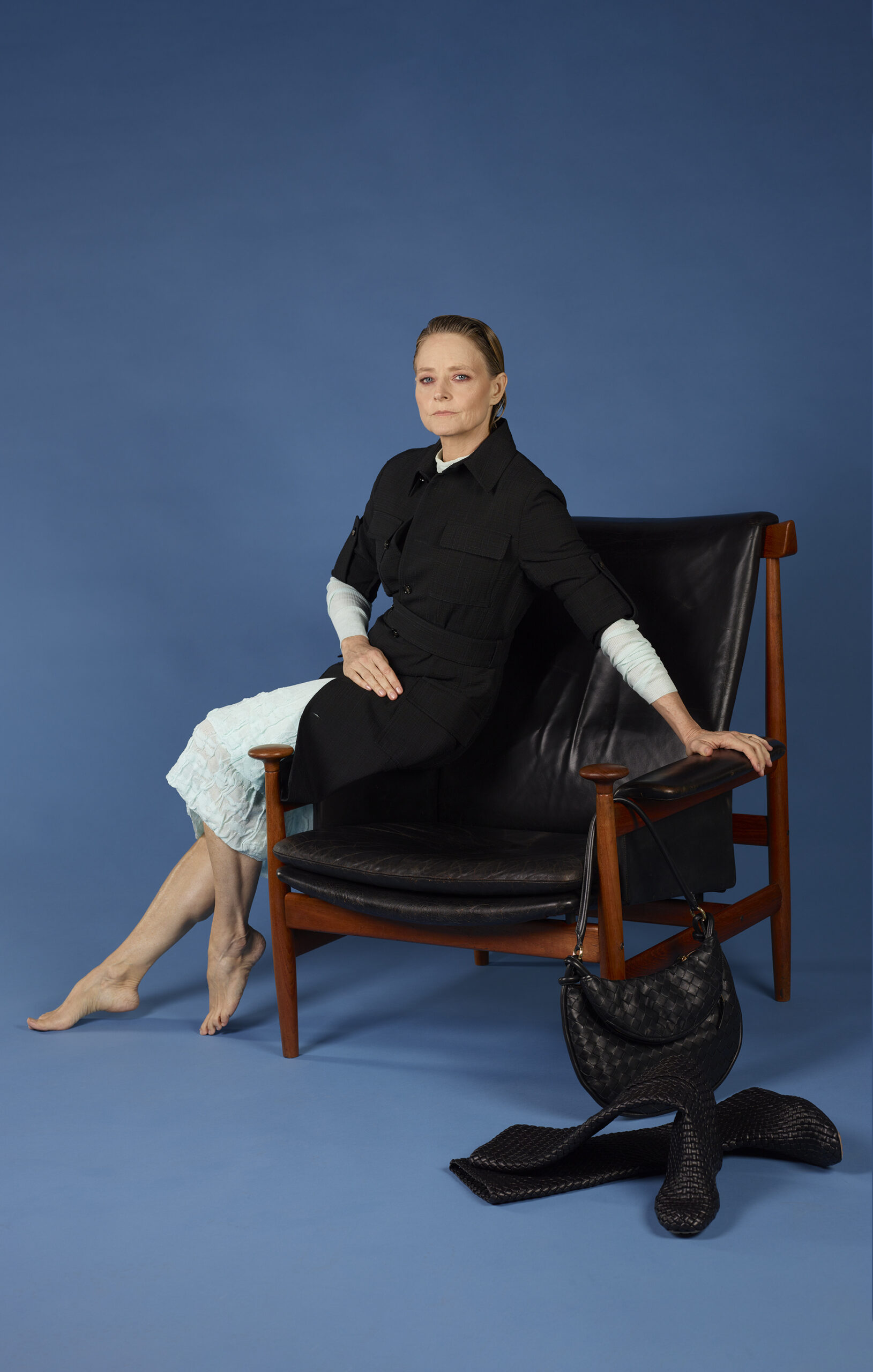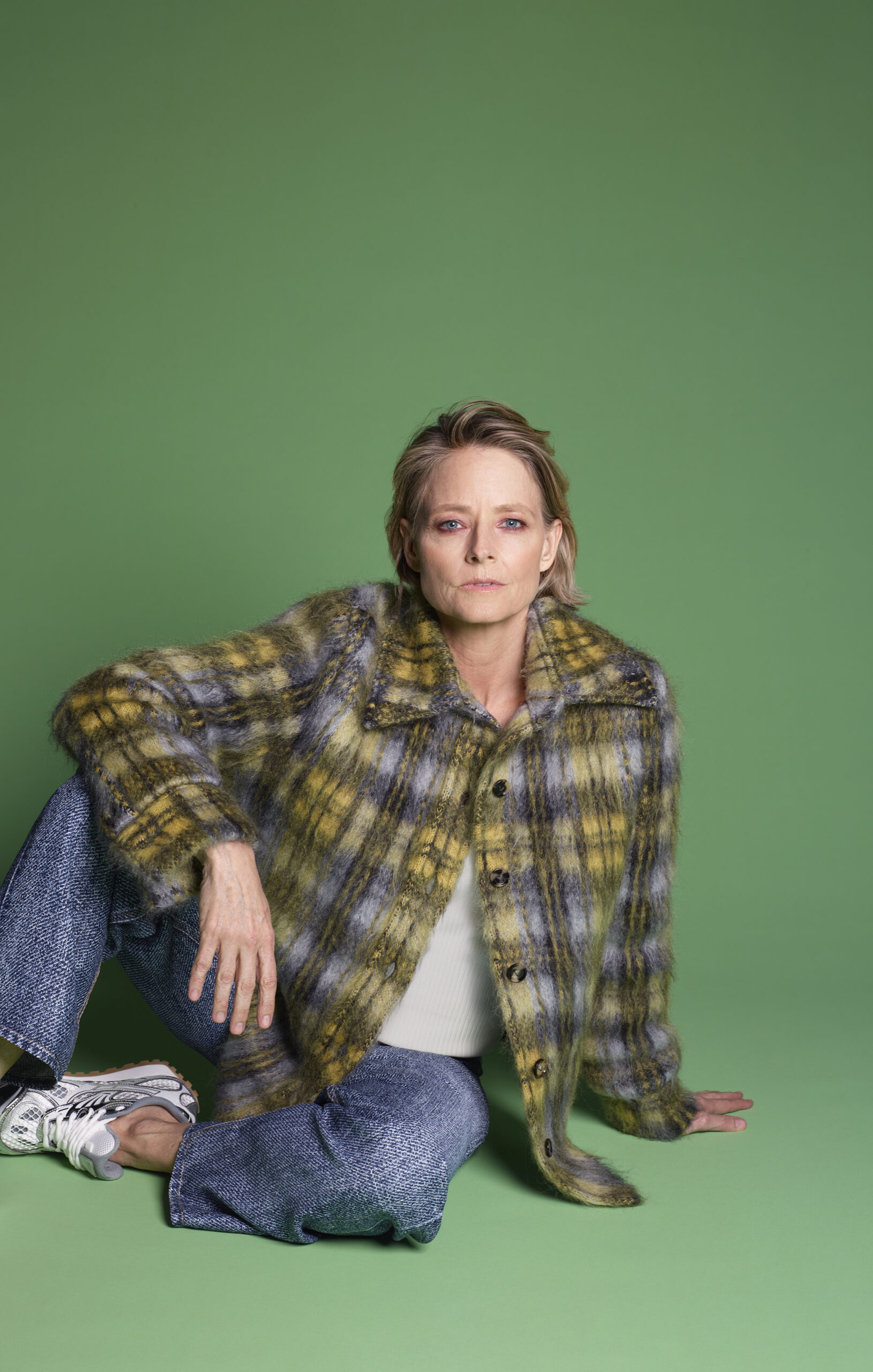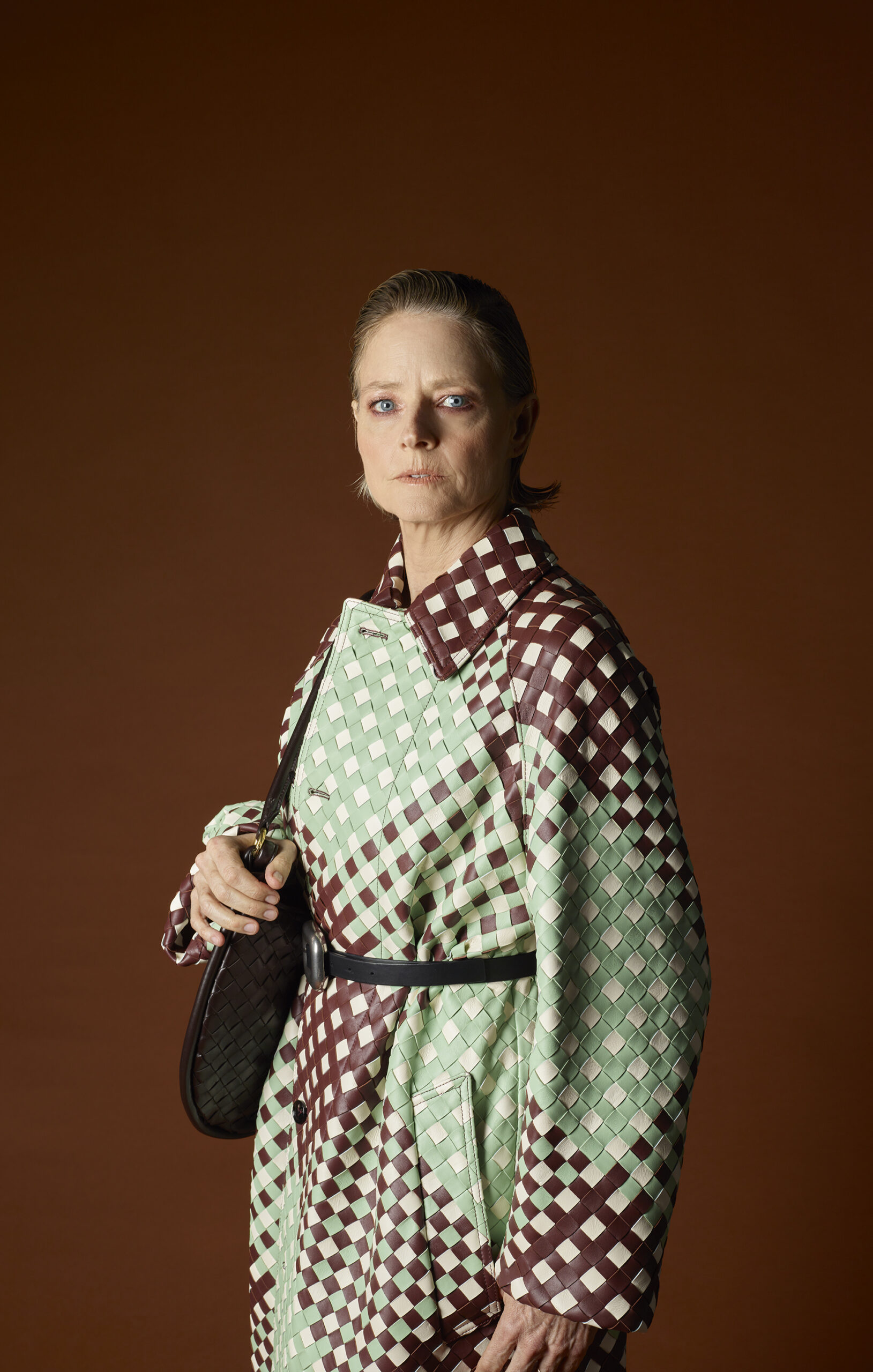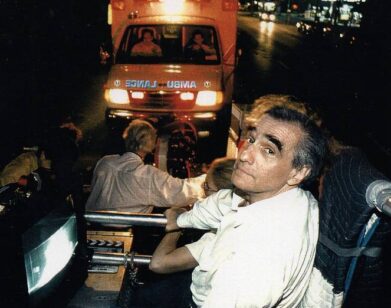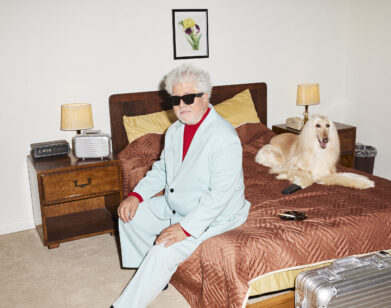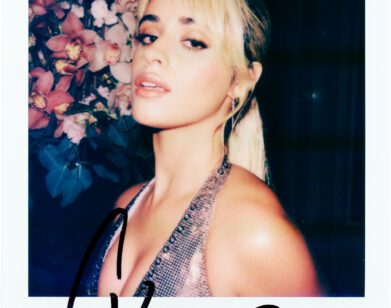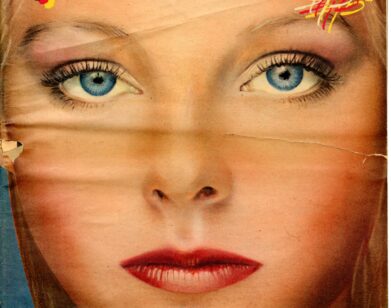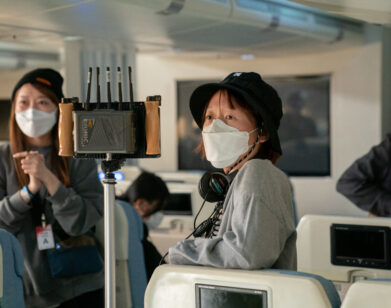ICON
The Jodie Foster Guide to Aging in Hollywood
Jodie Foster wasn’t born on a set, but she might be the closest thing we have to an industry lifer. Her first gig was at age 3, and by 14 she had played a child sex worker alongside Robert De Niro in Taxi Driver. Foster, now 61, has transformed as an actor, an artist, and a person: from kid star to ingénue, to leading lady and Oscar darling, who along the way became a serious director in her own right. This winter, Foster adds two new roles to that long list of remarkable personalities. First, she plays an indomitable training coach opposite Annette Bening’s dogged ocean swimmer Diana Nyad, in the biopic Nyad. Then, a homicide detective on the hunt for an Alaskan serial killer, in the much-anticipated fourth season of HBO’s True Detective. When you’re a massive talent your whole life, there’s almost nothing you can’t do, except, as Foster admits to the actress Greta Lee, dancing in public. That, she was never good at.
———
WEDNESDAY 12 PM OCT. 18, 2023 LA
JODIE FOSTER: Hi Greta!
GRETA LEE: Hi! It’s nice to see you!
FOSTER: You too!
LEE: I feel like we have matching hair right now.
FOSTER: We do. It’s fantastic, right? Because you wash it and then you just do this. I did two shows back-to-back, each one with dyed hair, so I had to keep cutting it because it was falling off in my hands.
LEE: I get that. Do you like doing a hair change?
FOSTER: I like how easy it is to find a character when there’s some-thing completely different about the person. I don’t love sitting in a makeup chair and talking about my eyebrows or anything. That, I can live without.
LEE: You don’t? That’s so shocking that you wouldn’t like that!
FOSTER: [Laughs] My last two shows have been fun though, because I’ve played characters in really comfortable outfits. I’ve lost interest in the days of corsets and high heels. The last time I did a corset, it was in Malaysia and it was a hundred degrees every day. I had to wear leather shoes, a wig, a corset, two petticoats, a skirt on top of that, gloves, a whole outfit. I was just like, “That’s it. I’m done.”
LEE: But would you self-identify as a physiological performer in that way?
FOSTER: To tell you the truth, especially now that I work with a lot of younger actors, I see the beauty of having 10,000 hours, and that confidence where you don’t expend energy needlessly. It’s more about being in the moment. If you know the character enough, stuff will happen. So much of that is trusting the physical part of what you bring to the table. I like how quickly the physicality brings you to the place, and then you don’t have to do much work after that.
LEE: It’s all about grabbing onto whatever you can to make this sometimes impossible-seeming job easier on ourselves, right?
FOSTER: Yeah. I don’t know if you agree with this, but I would say it’s a job that is either ridiculously boring, like tedious beyond any tedium anybody should have to endure, or so challenging that no person should have to do it. It’s always trying to balance between the tedium and the emotional challenge of it all. I do see younger people struggle. They’ll come in and be like, “Wow, I’m really nervous.” And I want to say to them, “Don’t do the nervous thing. That’s a mistake.” Because there’s not much you can do about it. If it sucks, it sucks. If you didn’t bring it to the table today, there’s nothing you can do. I wish I could take the anxiety away from them and let them understand that they should just be okay with it.
LEE: I love this. The Jodie Foster pep talk.
FOSTER: When I was younger, I thought I had to be miserable in order to give a good performance. Now I understand that I have to be having a good day. So once they say, “Cut,” I’m thinking about something else. And then I really like to have fun. But you jump back and forth between drama and comedy—we did a comedy together and you’re the funniest person ever.
LEE: Oh my gosh, thanks.
FOSTER: When people think of you, they might think of you in lighter roles or performances. But Past Lives, I mean, you dropped right in. That’s a spectacular performance.
LEE: Thanks, Jodie. I remember seeing you at that screening. My parents were there. That was the first time they ever saw it, but the first thing they said was, “Oh my god, is that Jodie Foster?”
FOSTER: Awww!
LEE: Which is significant because I don’t think they’ve ever made any sort of comment about anyone in the industry. But they were so excited to meet you and my dad said you’re beautiful. Watch it, dad! [Laughs]
FOSTER: [Laughs] You’re from Southern California, right?
LEE: Yeah, but we moved around a bunch, and for most of my adult life and my professional life I’ve been on the East Coast. I just moved back to L.A. You were an L.A. kid, right?
FOSTER: Born and raised. I traveled around and did all that, but California is the best place to come home to. It’s easier to relax here for me. And then there’s the nature, where it doesn’t matter if it’s winter, you can go out in your t-shirt and take a hike. It really makes for the right lifestyle.
LEE: Oh yeah, it’s essential. When I lived in New York, I was still ascribing to this idea of being a somewhat tortured artist. I thought that would make me a better actor. But as you have more life under your belt—I think I’m just now starting to understand what it’s like to work from a place of peace. Not to sound so hippie-dippie about it.
FOSTER: I think it’s an age thing, because I felt these huge shifts the day I turned 30 and the day I turned 60. And 60 was the best shift of all, because I was struggling in my fifties. I was sort of like, “Am I ever going to do anything meaningful again? Is this all there is?” And there’s that awkward phase where everybody who’s in their late forties or fifties is very busy getting all plumped and shooting shit into their face. I didn’t want that life, but I also knew that I couldn’t compete with my old self. So my fifties were tough. Then something happened when I turned 60. I was like, “I figured it out. This is good.” There was something about going back to the work with a different attitude, I think. About really enjoying supporting other people and saying to myself, “This is not my time. I had my time. This is their time, and I get to participate in it by giving them whatever wisdom I have.” Somehow it’s so much more satisfying to be a part of a team that’s doing something awesome than it is to be all on your own trying to jump up that hill and make something out of nothing while everybody’s like, “Is it going to open well?” And the pressure I had being a leading lady? Gosh, it all disappears the minute you say, “No.” It’s shocking how great that is.
LEE: That is so good to hear, because I turned 40 last year and I had my own version of this freak-out. But I was just thinking this is so fascinating because, Jodie, it is your time. And it’s wild that you’ve been in the business for, is it like 50-some years?
FOSTER: Yeah, 57 years.
LEE: I think people take for granted that you’re still doing it. What keeps you in this? What are you looking for?
FOSTER: Oddly, it’s more fun now than it has been, certainly in the last 20 years. Maybe it’s the choices I was making or it’s a contentedness that I bring to the process. Also, there’s something subversive about going, “This is how the character is. They’re mean, they’re selfish, they’re annoying.” Sometimes when you’re the lead person driving the narrative, it’s a different architecture. So I’ve kind of been like, “Well, I’m going to be the character actor that I guess is a leading role, but it doesn’t feel like a leading role.” And that’s been fun for me.
LEE: Is there a way to make some sort of evaluation in terms of what you like better, acting or directing? Is this the most annoying question ever? I’m going to ask it anyway.
FOSTER: I mean, there are two different sides of me, and the directing side is much truer to who I am. I have an opinion about everything. I’m very compartmentalized. I’m a future thinker and a big picture person. I like to organize. I like to make lists. I’m slightly hyperfocused and OCD. And all of those things aren’t really great for acting. I’ve had to learn how to sit on them. So it’s more comfortable for me to be a director, but obviously it’s harder for me to get movies off the ground, and it’s a longer process. So I think maybe if I have one regret in my career, it’s that I wasn’t able to make more movies as a director, but I’m really proud of the films that I made. They weren’t these gigantic hits, but they’re really personal stories that mean a lot to me.
LEE: The scale of the movie that we did, that was a huge movie.
FOSTER: Money Monster was the first genuine studio movie that I’d ever made, perhaps the last, as a director. It’s hard because it’s your baby and you love everything about it. The whole post-production was so difficult because it did have a strange tone. It had a lot of comedy, and I guess there was a thriller element to it. And it was, in my mind, more of an ensemble movie. It also had a kind of a theater-piece quality, which were none of the things that anybody who was selling the movie thought was a plus. It was tough for me. It was a big fight.
LEE: Do you have any sort of bucket list? I mean, at this point in your career, in life, I feel like you could just sit down and take a nap. You’re good. But are there things that you’re still after?
FOSTER: For acting it’s different than directing. For acting, I really like learning something hard, and I’ve barely been asked to do that. So I would like to be told, “You need to learn how to play the violin in eight months,” or something. Because I like school, so I like that part of it. In terms of directing, I don’t know how many more movies I have in me. There’s something I’ve been working on, which I can’t talk about, but I’ve been working on it for 10 years.
LEE: Well, I can’t wait to hopefully be able to find out what the hell that is.
FOSTER: I try not to tell people about it because if it doesn’t get made, then I look like an idiot. Did you know [director] Celine Song before Past Lives?
LEE: No. I thought she was a freak alien when I met her. As a woman, and a woman of my age, part of me felt like, “How dare she announce herself in this way and demand the respect that she was warranting, that she was demanding from everybody?” And it did a funny thing to me, seeing someone come in right out of the gate and do that. It’s almost like she didn’t know that there’s societal inequity.
FOSTER: Did nobody give her the memo?
LEE: Yeah. I mean, this is making her sound like she’s not aware, and that’s not true. She’s hyperintelligent, hyperaware, extremely mature. But I know how, over the years I have felt on set sometimes this unspoken, “Are people going to listen to what I have to say because of my gender, because I look like this, because of the sound of my voice?” Whatever it is. And then seeing someone who seemingly had none of that, I just felt like, “Dang, this is remarkable.” And it did something to all of us. It cut the bullshit.
FOSTER: When you get that, it inspires you to go to a different place.
LEE: I want to know how you’re feeling about the state of filmmaking and TV. Do you feel optimistic?
FOSTER: I do. I mean, this transition has been painful. But there’s a part of me that’s just like, “I’m going towards the future.” I don’t care if I’m going to do work on a big massive screen or on somebody’s iPhone. I’m here to embrace what’s happening. We have to be open to change, and there are new things that are happening even on the studio side with these massive tentpole movies where there are extraordinary visual digital geniuses who are creating things that we could never have dreamed of. It’s not what I want to do or what I’m capable of doing necessarily as a filmmaker, but I do appreciate it when it’s brought together with the intention of touching people emotionally. And when that happens, it’s amazing. But yeah, I think even just this summer with “Barbenheimer,” it was so great to have audiences go, “Fuck you. I want to see something new.” They’re two completely opposite things coming from two opposite places, and people understood intuitively that both films were trying to do it differently, that they weren’t relying on old tropes and structural language. And they really supported it. It was fun to watch. I have faith in audiences. There have been some extraordinary indie movies that have come out of this, and it’s great seeing all the international films that are now accessible in ways that they haven’t been in the last 30 years. So I don’t know. I’m going to choose to be optimistic.
LEE: Whoa, wait, it says here in these notes that you’ve actually done one of these interviews with Andy Warhol! How the fuck was that? What was he like?
FOSTER: He was kind of like my aunt or something. We would always have these funny conversations where he’d ask me about what’s happening in high school, and he was always trying to fix me up with some cute young boy, and he just was adorable. He was a really sweet guy and very generous.
LEE: What’s one movie you think everyone should see at least once?
FOSTER: Well, Everything Everywhere All at Once. Oh, and this is probably number one—the puppet movie Team America: World Police.
LEE: Incredible perfection. Honestly no notes. This is what is so delicious about these answers.
FOSTER: A sense of humor is my touchstone, and I have a very dumb sense of humor. Sometimes with actors, even in the most dramatic circumstances, I like to laugh with them. I like to laugh about really intense things.
LEE: If you could be completely anonymous, how would you spend the day?
FOSTER: When I was a kid, I really wanted to go to Disneyland and not be recognized. It’s not that people bothered me and it’s not like I would not respond or take pictures. It was just that I wanted a pure experience. There are actually a lot of experiences that I now recognize I missed out on a bit. I don’t think I realized it in my twenties and thirties, but there are pure experiences that I couldn’t have because I bring baggage to the table. When you meet people for the first time they already know you. They already know what your elbows look like. They already know what you look like when you cry or scream. It does taint your experience with people. And I guess sometimes I feel—maybe everybody does—a little self-conscious about dancing. Maybe if I thought nobody knew who I was or would remember me, I would just go nonstop dancing.
LEE: I’m going to cry. Just let Jodie Foster dance!
FOSTER: Exactly. I mean, it’s not like I don’t do it. It’s just that I wish I could pull the rod of self-consciousness out of me a little bit more. You don’t want your most private thing to be when you’re the most free. When we did The Accused, it was something I talked about a lot, actually, because engineering and orchestrating the rape scene—what she was being punished for, or the violence that happened, was because she had a moment where you are your most open and true self. She says, “I love this song,” and she dances on a dance floor and she’s not paying attention to what that means or that it makes her vulnerable to violence. She’s in her most beautiful moment, and that’s when she’s punished. I brought that to the table, I think, when we did that film, and it’s still something that I think about now.
LEE: In terms of your process, do you feel like it’s changed?
FOSTER: It has gotten more economical, but there also is a level of consciousness that I have as an older person that I didn’t have in my twenties. When I did The Accused, for example, I did no prep because I was scared and I was young—I was only 24 or something—so I just read what I had to read for the auditions. It worked for that particular movie, but I’ve never done that again. With Silence of the Lambs, I did so much prep work about forensics and spent time at Quantico and all of that, which was important. But I think I did all that also because I didn’t have children. I didn’t own a home. I didn’t have anything else to do. Now I’m much more economical about what I choose to bring in.
LEE: I like saying that it’s economical as opposed to some sort of deficit. I have two young kids, and sometimes I think about the privilege it is to be Method. No one around me would accept it if I decided to walk around with a limp and a funny accent. But I’d like to think that there is a benefit either with family or age and experience of being more, I don’t know, deliberate, I guess.
FOSTER: Yeah. Doing the movie Nell was a huge learning curve for me because I usually play people that are cerebral and operating on different layers, and here I am creating a character who lives with feelings on the surface of her skin and is reactive and doesn’t have a traditional language that we understand, because she has a language that she’s created. So I was like, “I’m going to do a bunch of research.” But each thing I did was a total bust. Then I had some kind of revelation that if I could identify one gesture or sound that evoked this person to me, that’s all I needed. And once I realized that, I was like, “Oh my gosh. All this time I’ve been overworking things.” From then on I understood that some of the work that you do can really get in the way of being specific in a character. It’s like you need to just eat the work and then forget that you ate it.
LEE: Can I announce myself as officially becoming a paid subscriber to the Jodie Foster School of Acting? Because it’s like everything I needed to hear.
FOSTER: Well, get working on your Team America monologues. [Laughs]
LEE: I literally could talk to you for five more hours.
FOSTER: I know. I was so excited that I got to pick you. Thanks for doing this.
LEE: This was amazing. It was my total pleasure.
———
Hair and Makeup: Brett Freedman using Laura Geller Beauty at Celestine Agency.
Nails: Alex Jachno at Opus Beauty.
Studio Management: Heather Rasmussen.
Fashion Assistant: Catie Lane.
Tailor: Diana Aghajanyan.

